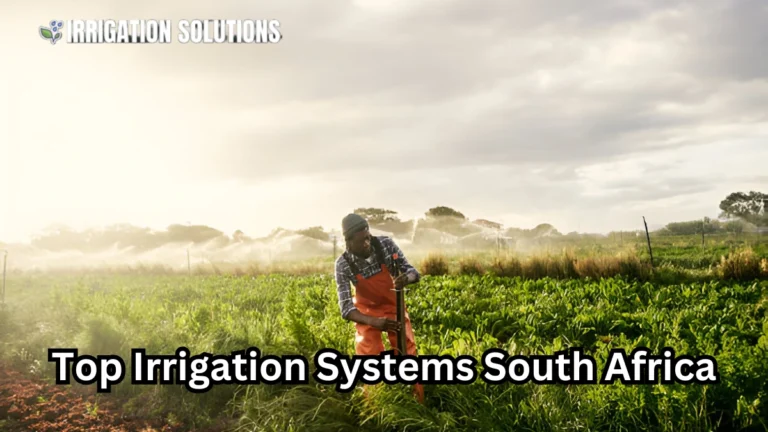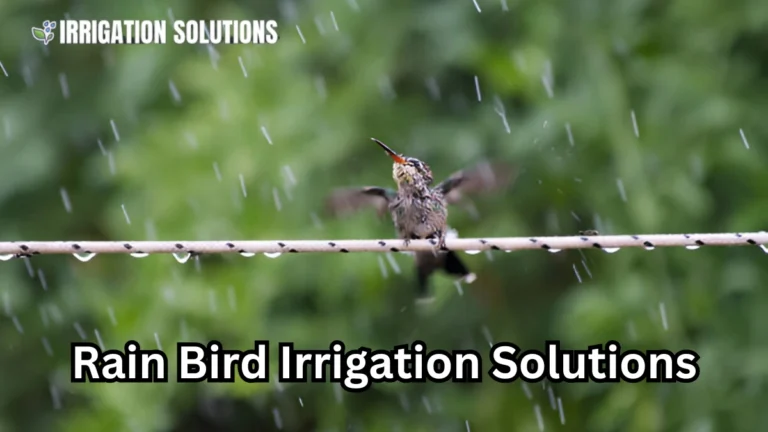best irrigation systems vegetable garden

Irrigation plays a critical role in the success of your vegetable garden. Water is essential for plant growth, but not all irrigation systems are created equal. From conserving water to ensuring optimal plant health, choosing the right system can make a world of difference. Whether you’re a novice gardener or a seasoned green thumb, this guide will provide you with all the in depth knowledge you need to make informed decisions about the best irrigation systems for your vegetable garden.
Why Irrigation is Crucial for Your Vegetable Garden
Watering plants may seem straightforward, but the way you water can have a significant impact on the health and productivity of your vegetable garden. Too little water leads to wilting, poor growth, and smaller yields, while too much water can cause root rot, fungal diseases, and nutrient leaching. The key is consistency and efficiency, which is where an irrigation system comes in.
Benefits of Using Irrigation Systems
- Consistency: Automated systems deliver a precise amount of water at regular intervals, ensuring plants get the hydration they need.
- Water Conservation: Efficient irrigation systems use less water, reducing waste and saving money on your water bill.
- Time-saving: With an automated system, you can spend less time watering and more time enjoying your garden.
- Healthier Plants: Proper watering reduces stress on plants, which translates to healthier, more productive crops.
- Reduced Weed Growth: By targeting specific areas of the garden, irrigation systems reduce water runoff and minimize weed growth.
Types of Irrigation Systems for Vegetable Gardens
There are several types of irrigation systems, each offering its unique advantages. Let’s dive into the most common types of irrigation systems used for vegetable gardens.
Drip Irrigation: The Water Saving Champion
Drip irrigation is one of the most efficient watering methods for vegetable gardens. It delivers water directly to the soil near the roots of plants through a network of tubes, emitters, and valves. This system minimizes water waste by ensuring water goes exactly where it’s needed.
Benefits of Drip Irrigation:
- Water Efficiency: Drip irrigation can save up to 60% of water compared to traditional watering methods.
- Targeted Watering: It delivers water right to the base of plants, reducing evaporation and runoff.
- Reduced Fungal Diseases: By keeping the foliage dry, drip irrigation minimizes the risk of fungal growth.
- Versatile: Can be used for rows, raised beds, and even container gardens.
Key Considerations:
- Requires an initial setup cost for tubing, emitters, and filters.
- Needs regular maintenance, such as cleaning clogged emitters.
Soaker Hoses: Simplicity at Its Best
Soaker hoses are a flexible and easy-to-install alternative to drip irrigation. These hoses are designed to seep water along their entire length, slowly watering plants as they go. Soaker hoses are ideal for gardens with a variety of plant types and garden beds.
Benefits of Soaker Hoses:
- Affordable: Soaker hoses are relatively inexpensive and easy to install.
- Even Coverage: They provide uniform water distribution, especially in raised beds.
- Low Maintenance: Unlike drip systems, soaker hoses don’t have emitters that can clog easily.
Key Considerations:
- Soaker hoses can be prone to damage from UV rays, so you may need to replace them every couple of years.
- They don’t offer the same precision as drip irrigation in targeting specific plants.
Sprinkler Systems: Ideal for Larger Gardens
Sprinklers are a common choice for larger vegetable gardens. They come in a variety of styles, from stationary to rotating, and can cover large areas of land. While sprinklers are less water efficient compared to drip irrigation, they are still a popular choice due to their convenience.
Benefits of Sprinkler Systems:
- Quick Setup: Sprinklers are easy to install and can cover large areas quickly.
- Versatility: They can be used for lawns, flower beds, and vegetable gardens alike.
- Adjustable: Some models allow you to adjust the spray pattern, ensuring better coverage.
Key Considerations:
- Water Waste: Sprinklers tend to spray water onto the leaves and surfaces, which can lead to increased evaporation and water wastage.
- Over-watering: If not properly adjusted, sprinklers may end up over watering some areas while leaving others dry.
Automated Irrigation Systems: The Future of Gardening
For those who want ultimate convenience, automated irrigation systems can be a game changer. These systems use timers, sensors, and smart controllers to ensure that your garden gets exactly the right amount of water at the right time. Many modern systems even offer smartphone connectivity, allowing you to control and monitor the system remotely.
Benefits of Automated Irrigation Systems:
- Convenience: Automated systems water your garden even when you’re not home.
- Precision: With built-in sensors, the system adjusts watering based on weather conditions and soil moisture levels.
- Water Conservation: Automated systems help avoid over watering, saving water and reducing your environmental footprint.
Key Considerations:
- Cost: These systems can be pricey, especially if you opt for advanced features like weather based controls or smart sensors.
- Complex Installation: Some systems may require professional installation, especially if you’re setting up a large-scale garden.
How to Choose the Right Irrigation System for Your Vegetable Garden
With so many options available, it can be challenging to choose the best irrigation system for your garden. Consider the following factors to help make your decision:
Garden Size and Layout
For small to medium sized gardens, drip irrigation or soaker hoses are great choices. They’re perfect for targeting individual plants without wasting water. For larger gardens, sprinklers or automated systems may be more efficient in terms of coverage.
Water Source
Make sure you have access to a reliable water source. If you rely on municipal water, keep in mind the cost. If you have access to rainwater collection systems or wells, drip or soaker hoses are ideal for minimizing water usage.
Budget
Drip irrigation and soaker hoses are more affordable options, while automated systems and sprinklers may require a larger initial investment. Think about both installation and long term maintenance costs when making your decision.
Maintenance
Drip systems and soaker hoses require regular maintenance to keep them in working order. Sprinklers are generally easier to maintain but may need adjustments over time to ensure efficient water distribution. Automated systems require minimal maintenance but come with higher upfront costs.
Best Practices for Efficient Irrigation in Vegetable Gardens
Once you’ve chosen the right system, implementing best practices can further enhance the efficiency of your irrigation. Here are a few tips to get the most out of your system:
- Water in the Early Morning or Late Evening: This reduces evaporation and ensures that your plants have time to absorb water before the sun comes out.
- Mulch Your Garden: Applying a layer of mulch around your plants helps retain moisture and reduce the amount of water needed.
- Adjust Watering Based on Weather Conditions: In hot, dry weather, your garden may need more water. During cooler, wetter seasons, you can reduce watering.
- Use a Timer: Setting a timer for your irrigation system ensures consistent watering while preventing over-watering.
- Check for Leaks: Regularly inspect your system for leaks or clogs to maintain optimal performance.
Conclusion
Irrigation systems are an invaluable tool for any vegetable gardener. By choosing the right system, you’ll not only save time and money, but you’ll also ensure healthier, more productive plants. Whether you opt for a simple soaker hose, a water-efficient drip system, or a high tech automated system, understanding the pros and cons of each option will help you make an informed decision.
With the right system in place and by following best practices for maintenance and watering, you’ll be well on your way to growing a thriving vegetable garden with minimal effort. Happy gardening!






